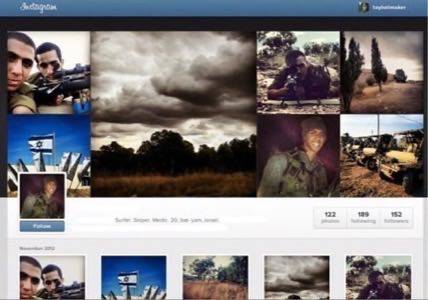
The Israel Defense Forces might be extremely social media-savvy – arguably disturbingly so – but it is asking citizens to stop posting about Hamas rocket attacks on sites like Instagram, Twitter and Facebook.
In a press briefing late last week, Israel warned that any social updates embedded with location information or geotagging could aid Hamas’s efforts. Instagram photos of successful strikes and even geotagged tweets and Facebook updates by Israeli citizens could help Hamas home in on Israeli targets. Since the militant group employs relatively crude rocket technology by most standards, aggregated public geo-data could offer a precision otherwise afforded only by more sophisticated equipment – or inadvertently crowdsourced.
Israeli citizens have been documenting the escalating conflict between Israel and Palestinian militants on the popular social sites, often with attached images. The IDF called for the social media blackout just a day before longer-range rocket strikes reached Jerusalem for the first time.
The Dangers Of Citizen Journalism
Following the Arab Spring uprisings, social sites have increasingly provided a platform for citizen journalism, instantly transmitting unfiltered images of violence to the world at large. Israel’s call for a social media hush shares little in common with 2011’s popular revolts in the Middle East, but there’s certainly an uneasy balance between protecting sensitive military information and flat-out censorship. In Egypt and Libya, the ruling authority’s desperate attempts to muffle the tweets and status updates only made the global community more engaged in those unfolding revolutions.
Both Israel and Hamas have leveraged sites like Twitter, Facebook and YouTube to promote their respective political agendas in recent weeks. The sophistication and breadth of these militarized social campaigns has extended the conflict beyond rocket strikes and border zone scuffles into, bizarrely enough, a branding war. This is truly war 2.0 – and we’re watching it unfold in real time.
















